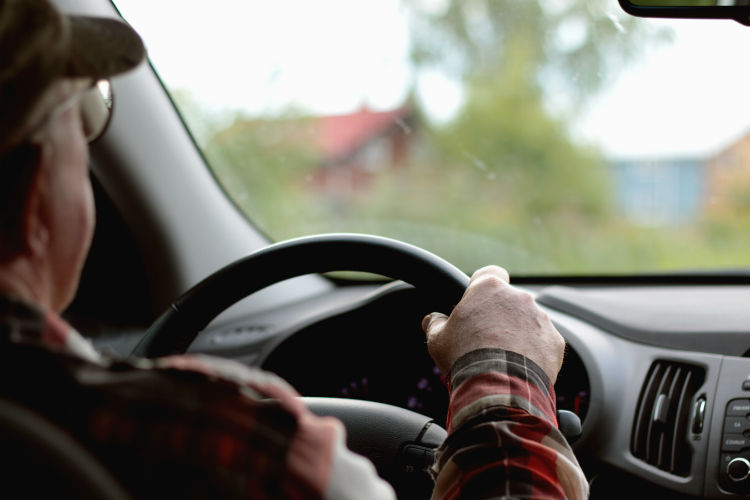This is a very tough subject. Obviously, if your loved one has been diagnosed with Alzheimer's or other dementia and has progressed to certain stages in the disease, they should not be driving. But, you often hear horror stories about this topic—about how the family just could not get their loved one to quit driving. So, what to do? How do you, as one of their children, for example, tell them and make them understand that they simply cannot drive?
The first thing to realize is, just because someone has been diagnosed with dementia, it doesn't mean they cannot drive. Many times dementia patients are lumped into one category and, for whatever reason, some think they cannot and should not be driving, period.
This is just one of the many aspects of the stigma surrounding dementia that has come about from the so called "experts.” More than once I have been on a radio show and gone toe to toe with the host on this topic.
Some people think that they know me. They know that I have dementia, and for that reason alone, they think I should not drive. Nothing irritates me more than someone who is not a patient telling me, a patient, how or what I should be doing or feeling.
I tell people who ask me about their loved one driving that the time has already come for them to take away the keys simply because they are asking about it. About 99 percent of the time, if a family is discussing this issue, the time has arrived already because there are cleart warning signs that your loved one has become an unsafe driver.
Another thing you should do is try to avoid being the bad guy here. Contact their doctor and have them tell your loved one that they can no longer operate a car safely. If you really think this won't work, then contact your local DMV and request they take a driving test.
Their doctor should be able to do this for you, but before you go to those lengths, just talk to the person. Tell them you have noticed that driving has become more and more difficult for them. Do or say whatever it takes.
I still drive. Like I said, not much, and not far. I don't drive out of town, and I don't drive when Phyllis June and I go anywhere together. She has driven when we go anywhere for many, many years—way before dementia came into our lives. I was in EMS and law enforcement for a long time and had to drive for a living. I didn’t want to drive when I was off, too.
Giving up driving will not be an issue for me—at least not today. That could change. I simply don't drive enough for it to be a factor of any kind. But there are those who consider driving to be the one last thing that represents their independence.
You, as the caregiver, have to take these people where they want to go, when they want to go if you take away their ability to get around. If you cannot accommodate this, for whatever reason, then you need to help them find alternative modes of transportation. They must understand that they will not be stranded at home, unable to go anywhere.
If your mother has driven to the beauty shop for some 40 years, telling her one day she can't do that anymore is going to be difficult to say the least. But the reality is that if your loved one is involved in an accident, and, God forbid someone is seriously hurt or dies, there will be a law suit. You can bet on that. One accident could land them in jail or a cemetery, and no one wants that. The law is the law. And if your loved one is involved in an accident where someone dies and it is attributed to their condition, they will be held accountable.
My insurance company, for example, knows of my diagnosis. To not disclose this would be fraud, in my opinion, and would only come back to bite us in the end. They told me they will cover any accident I am in, whether it is my fault or someone else’s. However, they will immediately drop me after that. I would still be able to get insurance, but I definitely would not be able to afford it. So, just not disclosing this to the insurance companies is not the answer. Be truthful.
But always remember that, just because someone is diagnosed with dementia, that doesn't mean they cannot drive by default. When this happens, you are lumping all patients together. Every patient is different. If they are no longer capable behind the wheel, take the keys, hide them, disable the vehicle by taking off a battery cable or sell it. Do what you have to in order to keep them and others safe.
Driving is a privilege, not a right. But you cannot take away this privilege just because of a dementia diagnosis. Many patients can and do drive in the early stages. That said, it is a progressive disease. It is imperative that caregivers watch for signs that clearly show their loved ones should no longer be driving. Be realistic about their abilities and their limitations. Be smart. Have a plan. Then, as we say, have another.
